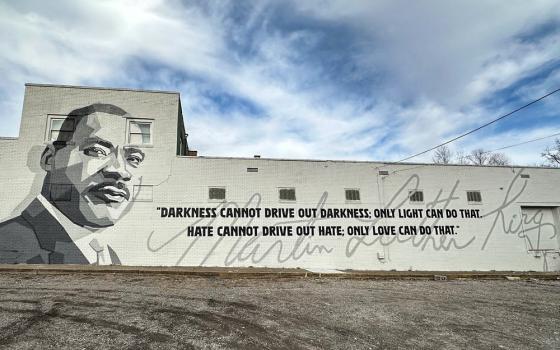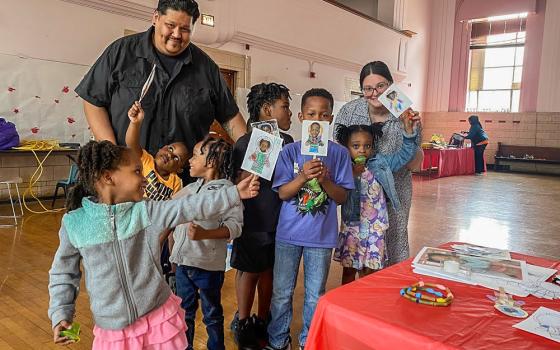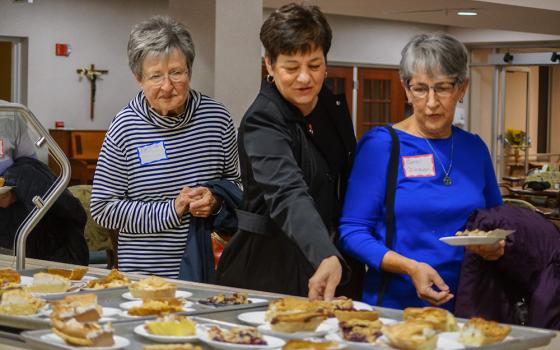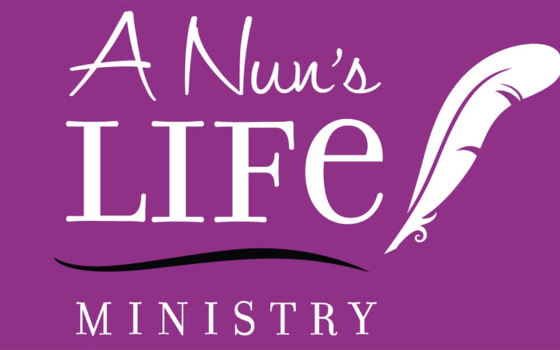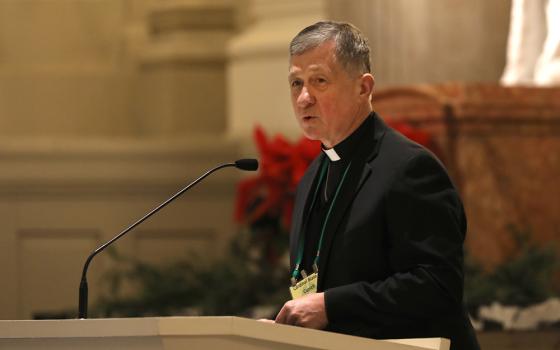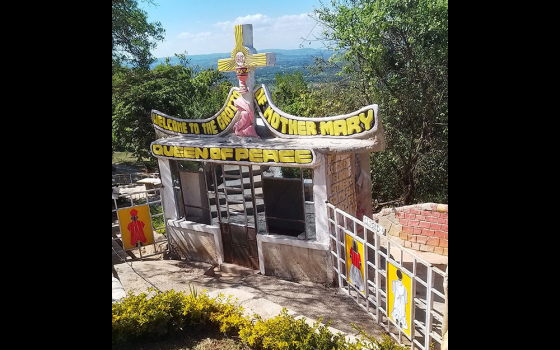
People attend a protest in Kansas City, Missouri, April 18, after 16-year-old Ralph Yarl, who is Black, was shot and wounded by a white homeowner after the boy mistakenly went to the wrong house to pick up his siblings. (OSV News/Reuters/Dominick Williams)
"Is there anything in the world that isn't messed up?" A friend asked this while we and two others were discussing climate change, gun violence, racism, sexism, transphobia, clericalism —name a justice issue, and it came up.
In recent months this question keeps replaying in the back of my mind. As I listen to the news each day, I can't help but wonder what is going on. This was especially true on the morning of April 16. That is when I learned of the shooting of Ralph Yarl, the 16-year-old in Missouri who accidentally went to the wrong house to pick up his siblings. A friend from Missouri posted the story on social media before it hit the national news outlets.
I would say that I was heartbroken. And I was. But more than that, I was angry. And afraid, quite honestly. Like many others before him, Ralph Yarl could have been any young Black man in my life — one of my students, nephews or cousins. And I believe that or something similar could happen to me if I go walking or jogging in the wrong neighborhood. If I should knock on the wrong door. There are too many examples that justify my anger. And anger isn't necessarily a bad thing. It depends on the fruit it bears.
In this Easter season, this 50 days of unbounded joy, I also think of a quote from Pope St. John Paul II, who said,
We do not pretend that life is all beauty. We are aware of darkness and sin, of poverty and pain. But we know Jesus has conquered sin and passed through his own pain to the glory of the Resurrection. And we live in the light of his Paschal Mystery — the mystery of his Death and Resurrection. "We are an Easter People and Alleluia is our song!"
How can we be an Easter people in the midst of such injustices? How do we maintain the hope that the paschal mystery gives us?
Last weekend, the Gospel for the Third Sunday of Easter was the story of the two disciples walking on the road to Emmaus. They had just experienced an incredible loss, not only of a friend and mentor, but of their hopes for a most just world. Their disquiet, disappointment and lost hope prevented them from recognizing the gift of Jesus in their midst. They just couldn't see him.
It may be easy for us to question, "How could they not recognize him?" But I think we can turn the question on ourselves: "How can we not recognize him?" Do we allow the injustices in our world to blind us to the presence of Jesus? Do we allow our disappointments or frustration with the state of society or sadness and impatience over the slow pace of change to cloud our vision? Does our anger lead to destruction or to life? These are the questions I need to be asking.
Acting for justice can help sustain hope. If we see injustice and are moved by it, but do nothing, it is easy for cynicism or despair to fester. However, not all actions bring life and restore hope. Some responses to injustice perpetuate injustice, bring about harm and act against the dignity of the human person, which contributes to our inability to recognize the presence of Christ. Or is it the other way around? Maybe our inability to recognize Jesus brings about actions against injustice that are themselves unjust. Both can be true.
Our starting point, then, has to be faith. If we hold firm to faith in things unseen, we can act in ways that inspire hope and life and contribute to the building of a more just society. In that way, we become the Easter people we are called to be and continue to see Jesus even in the midst of injustice.

